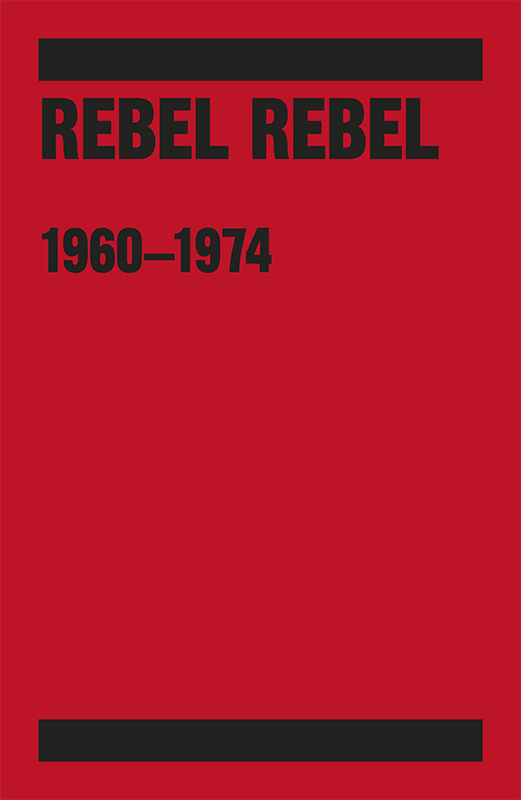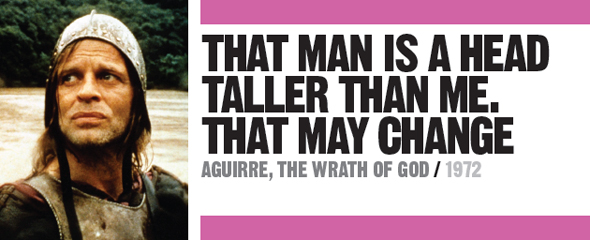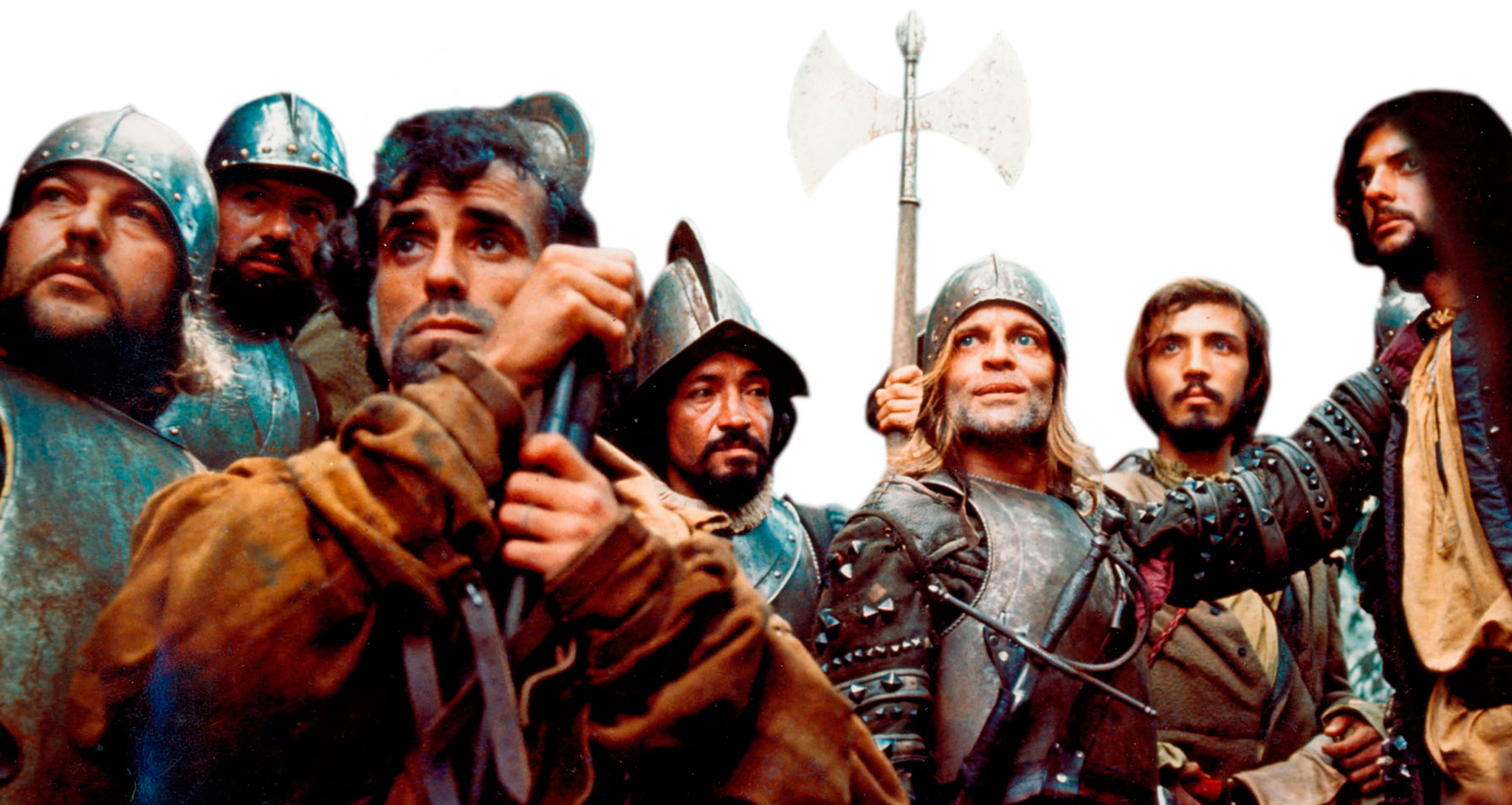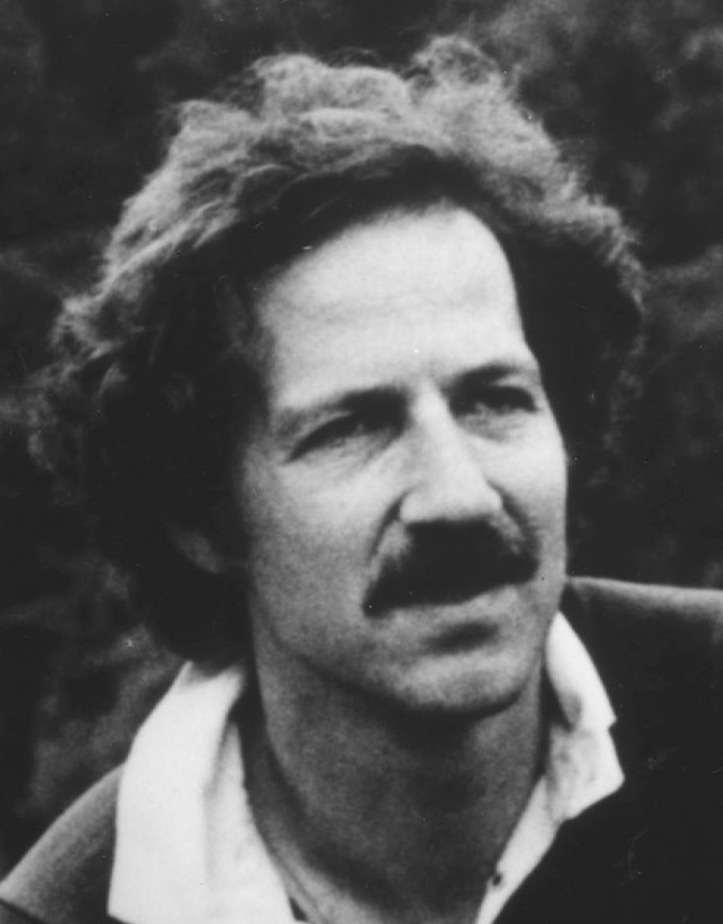The Movie Book (Big Ideas Simply Explained) (2016)


IN CONTEXT
GENRE
Adventure
DIRECTOR
Werner Herzog
WRITER
Werner Herzog
STARS
Klaus Kinski, Helena Rojo, Ray Guerra, Del Negro
BEFORE
1968 In Signs of Life, Herzog explores how isolation causes a man’s madness, a theme he would develop in Aguirre.
AFTER
1979 Francis Ford Coppola’s Apocalypse Now pays homage to Aguirre by using “visual quotations” from the movie.
1982 Fitzcarraldo, Herzog’s second movie about a deluded European in the Amazon, also stars Klaus Kinski.
1987 Cobra Verde is Herzog’s final work with Kinski as a madman lost to civilization.
Werner Herzog’s Aguirre, the Wrath of God is one of the most original pieces of cinema ever created. It is based on the doomed 1561 expedition of Spanish conquistador Lope de Aguirre to find El Dorado, the mythical Amazonian city of gold. Herzog’s story is of an obsessive quest that descends into madness, driven by a mesmeric performance from Klaus Kinski as Aguirre.
Extreme location
The filming of Aguirre has become something of a legend. It was shot in the Peruvian rain forest in a matter of weeks, and the cast and crew endured many of the same hardships as Aguirre’s expedition: climbing mountains, braving rapids on makeshift rafts, and hacking through jungle. Kinski went beyond the confines of “temperamental” into the outright unhinged, regularly raging at Herzog, the crew, and local extras. At one point, he shot off an extra’s fingertip.
The fact the movie was even finished is due to Herzog’s ability to see possibilities on the spot. He made up much of the dialogue as he went along, and frequently incorporated incidents into the movie that occurred among the extras. Herzog’s cinematographer, Thomas Mauch, produced a visually stunning movie, described by a German reviewer at the time as “a color-drenched, violently physical moving painting.” This look, combined with a churchlike musical score, gives the movie an almost mythical quality.
"Mr Herzog… is a poet who constantly surprises us with unexpected juxtapositions… This is a splendid and haunting work."
Vincent Canby
The New York Times, 1977
Smashing taboos
Aguirre is a monstrous figure, so overtaken with ambition that he completely ignores all social rules and human obligations. He shows no mercy or sympathy. Left alone in the jungle, he contemplates an incestuous relationship with his teenage daughter. “I, the Wrath of God, will marry my own daughter, and with her I will found the purest dynasty the world has ever seen.” He lets nothing stand in his way. When a man talks of turning back, he says, “That man is a head taller than me. That may change.” Then he beheads him while he is still talking. Aguirre’s brutality and resilience are so breathtaking, we might almost find him heroic.
But Herzog leaves us in no doubt that Aguirre’s ambition is futile and destructive. The final scene shows Aguirre alone on a raft, and his only company is hundreds of monkeys. He grabs one, and his heroic declamation, “I am Aguirre, I am the Wrath of God. Who else is with me?” is addressed to the monkeys. The scene is bathetic in the extreme. Aguirre is a man to be ridiculed and pitied, a man who has brought nothing but destruction through his own folly.

From the outset of the expedition, Aguirre’s eyes shine with the insanity of his obsession. The movie’s message warns of the dangers of myths on the human psyche.
“I am the Wrath of God! The earth I pass will see me and tremble.”
Aguirre / Aguirre, the Wrath of God
WERNER HERZOG Director

Werner Herzog is a director with a singular cinematic vision. Born in 1942, he grew up in a remote village in Bavaria, Germany. He was a rebel at school, but at 14 he read in an encyclopedia about filmmaking and, as he later admitted, stole a 35 mm camera from the Munich Film School. He made his first feature movie Signs of Life in 1968. Four years later, Aguirre, the Wrath of God, brought him international fame. He has also made many acclaimed documentaries.
Key movies
1972 Aguirre, the Wrath of God
1979 Nosferatu the Vampire
1982 Fitzcarraldo
What else to watch: The African Queen (1951) ✵ Deliverance (1972) ✵ Apocalypse Now (1979) ✵ Fitzcarraldo (1982) ✵ The Mosquito Coast (1986) ✵ Platoon (1986) ✵ El Dorado (1988) ✵ The New World (2005) ✵ Apocalypto (2006)